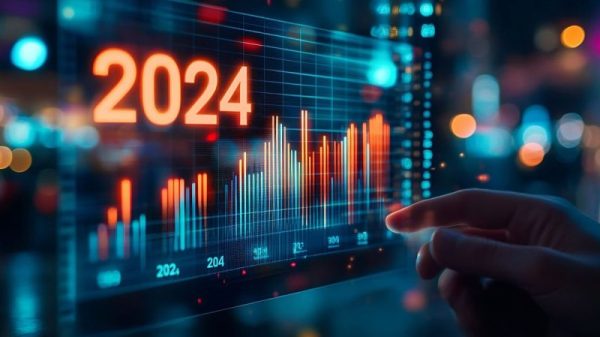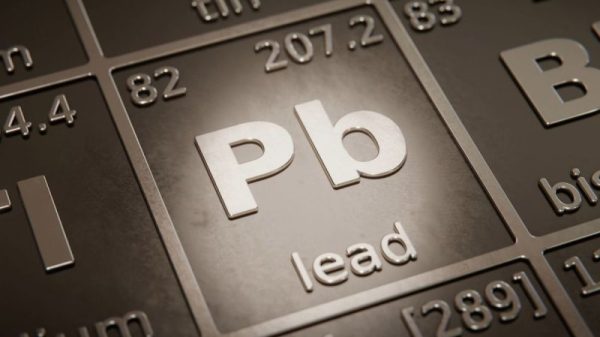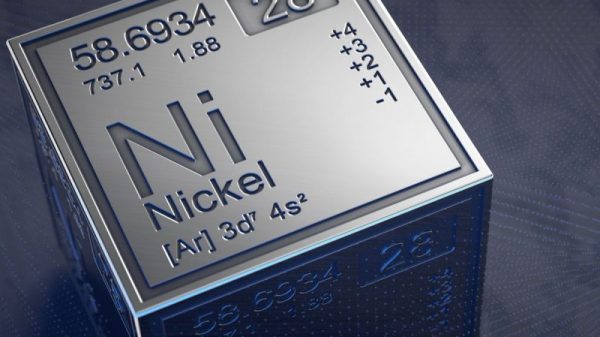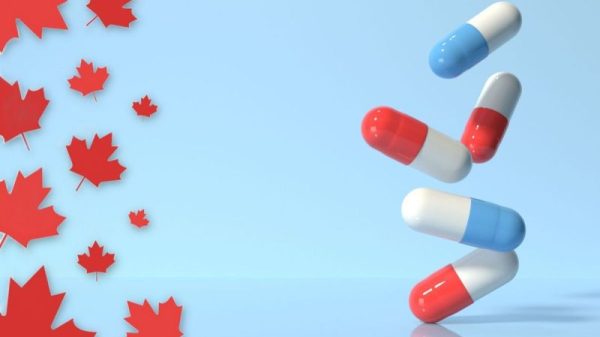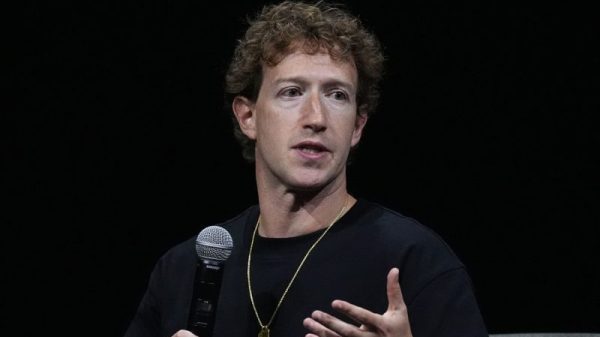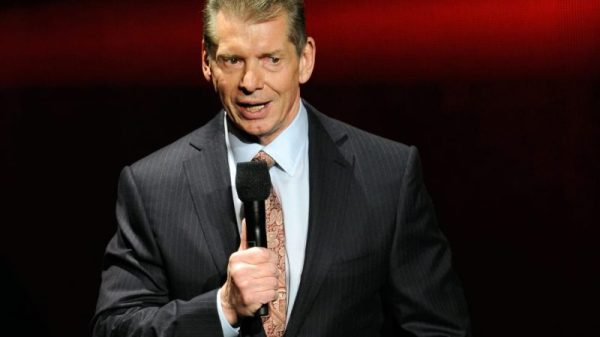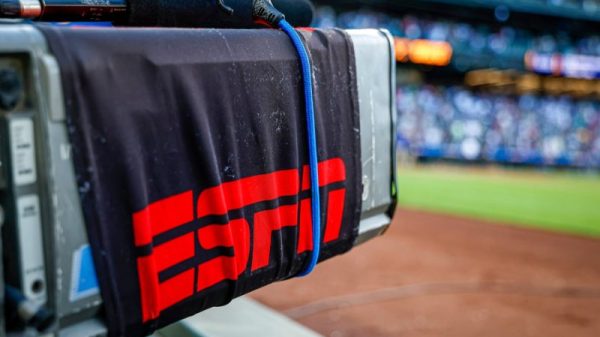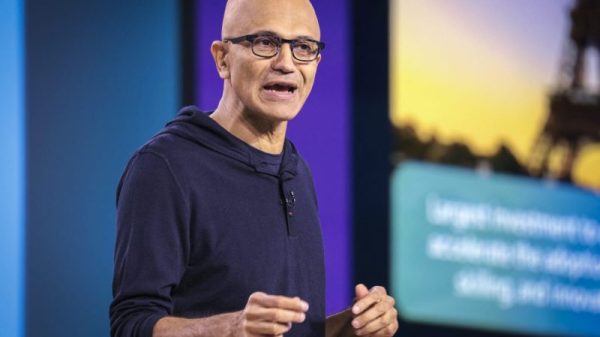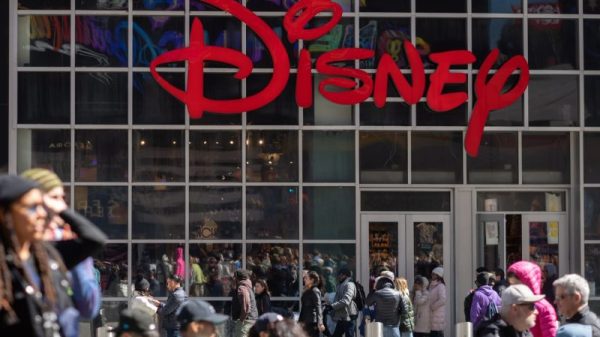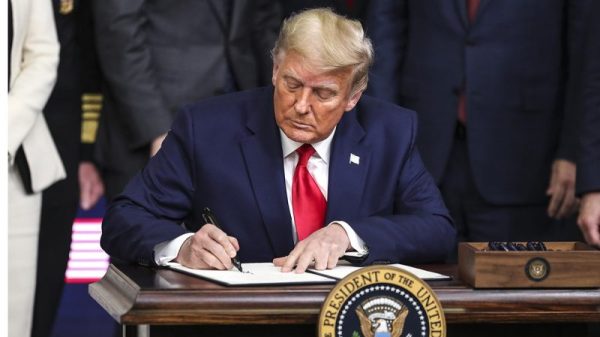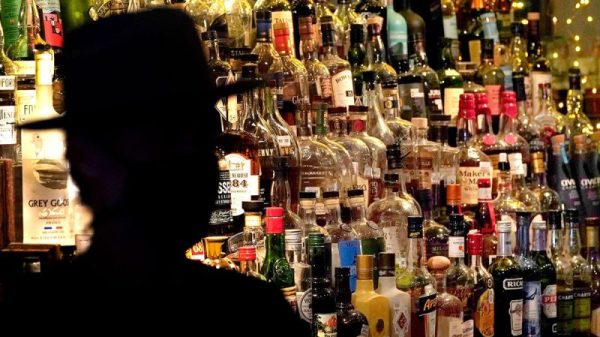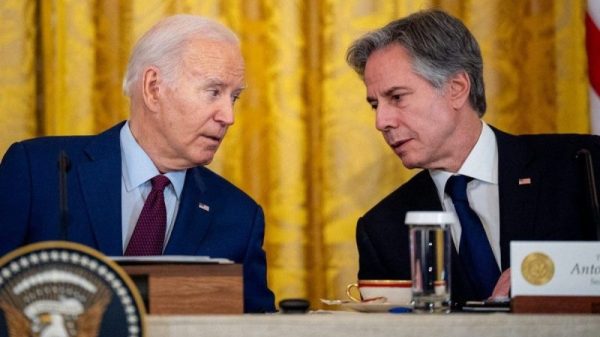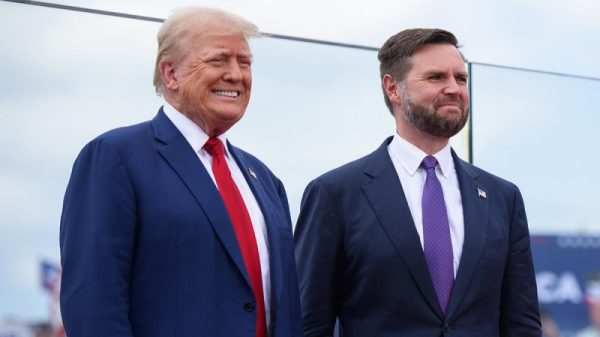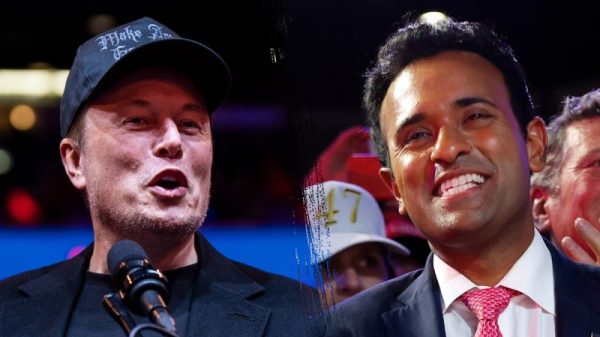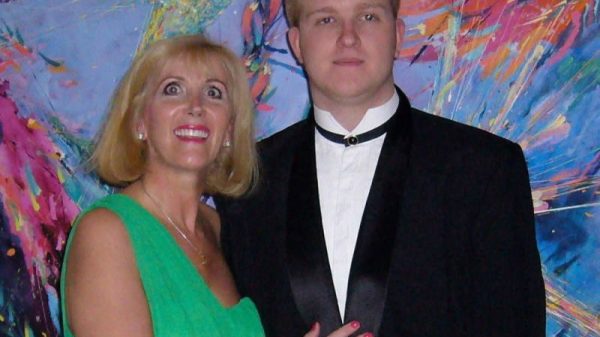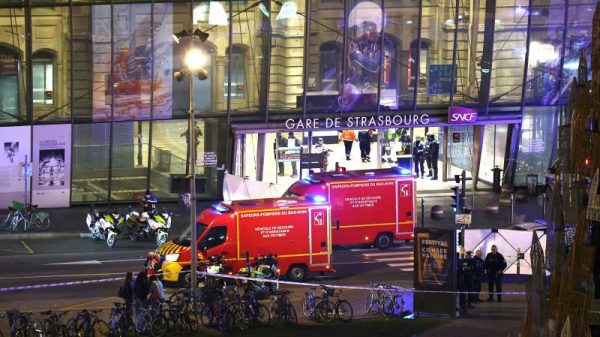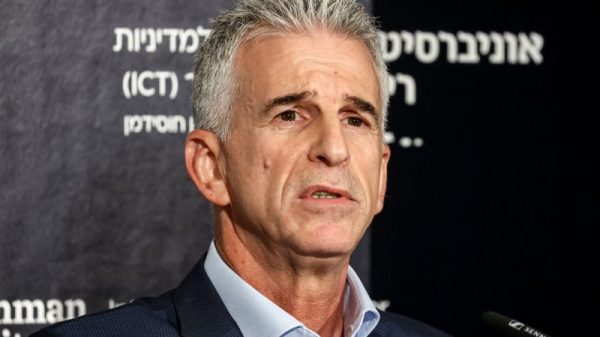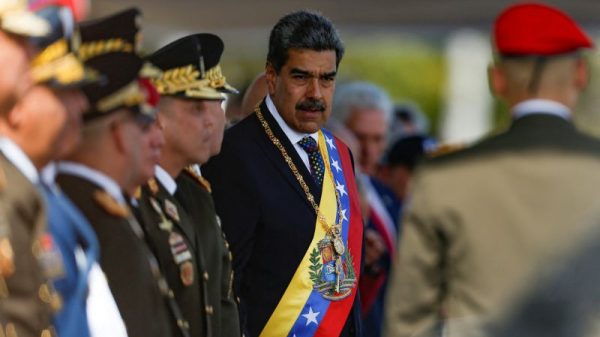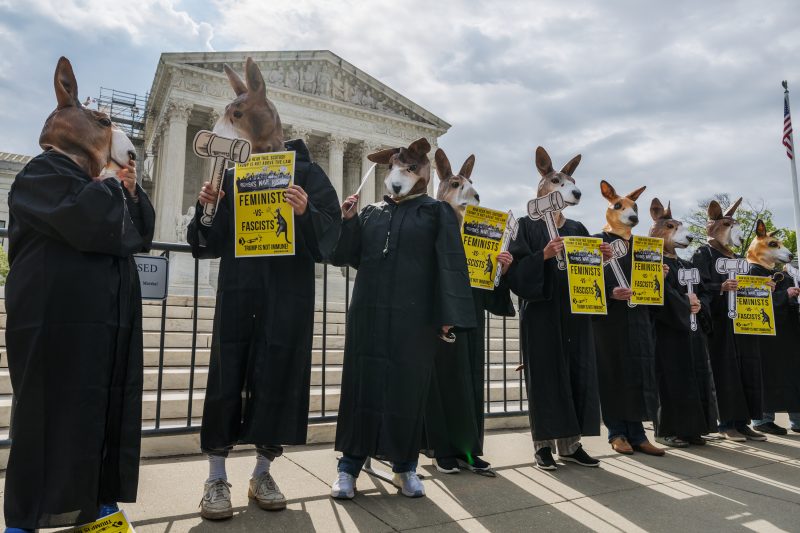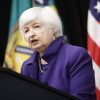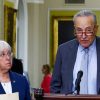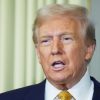The Supreme Court on Thursday appeared ready to reject Donald Trump’s sweeping claim that he is immune from prosecution on charges of trying to subvert the 2020 election, but in a way that is likely to significantly delay his stalled federal trial in the nation’s capital.
In nearly three hours of oral argument, both conservative and liberal justices grappled with the historic significance of the case, which will set boundaries for presidential power in the future even as it impacts whether Trump faces trial in D.C. before this year’s presidential election — in which he is the likely Republican nominee.
Trump, who is already on trial this week in a separate New York case involving business records connected to a hush money payment, was known for breaking norms while in the White House. He faces two other criminal cases as well, and is the first former president to be indicted. But again and again on Thursday, members of the high court noted that their decision, expected by late June or early July, will not just affect him.
“We are writing a rule for the ages,” said Justice Neil M. Gorsuch.
“This case has huge implications for the presidency, for the future of the presidency, for the future of the country,” added Justice Brett M. Kavanaugh.
The court seemed unlikely to fully embrace either Trump’s broad claim of immunity or the special counsel’s position that former presidents have no guarantee of immunity for their official acts. Instead, a majority of justices seemed to be looking for a way to provide more narrow protections for a president’s core constitutional duties, with some of the conservative justices especially concerned about hampering the power of future presidents.
In contrast, the court’s three liberal justices emphasized that a president is not above the law. They seemed to reject the idea of immunity from prosecution, expressing fears about giving a president unbounded power to commit crimes from the White House.
Justice Ketanji Brown Jackson asked Trump’s lawyer about the prospect of turning the Oval Office into “the seat of criminal activity in this country.”
“If the potential for criminal liability is taken off the table,” she asked, “wouldn’t there be a significant risk that future presidents would be emboldened to commit crimes with abandon while they’re in office?”
Most of the justices — and even the lawyers on opposite sides in the case — seemed to agree that a former president can be prosecuted for private conduct while in office.
“There does seem to be some common ground between you and your colleague on the other side that no man is above the law and that the president can be prosecuted after he leaves office for his private conduct. Is that right?” Gorsuch asked Trump lawyer D. John Sauer, who agreed.
No lower court has determined whether the allegations in Trump’s indictment amount to official acts that could be shielded from liability or private conduct. But when the Supreme Court agreed to take the case, it rephrased the question it would consider as: “whether and if so to what extent does a former president enjoy presidential immunity from criminal prosecution for conduct alleged to involve official acts during his tenure in office.”
That means the high court’s ruling is likely to require lower courts to separate out Trump’s official acts from his private ones, as alleged in the indictment, before proceedings can restart in the election obstruction case. If the D.C. trial is stalled until after the election, and Trump returns to office, he could pressure his attorney general to drop the federal charges against him.
Special counsel Jack Smith, who sat in the courtroom on Thursday to hear the arguments, has charged Trump with four felonies. The former president is accused of using false claims of massive voter fraud to pressure state officials, the Justice Department and former vice president Mike Pence to change the election results; scheming with others to submit to Congress slates of phony electors from swing states and get lawmakers to toss out lawful ballots; and encouraging supporters to gather on Jan. 6, 2021, at the Capitol, where a violent mob stopped the vote count for many hours.
In a key exchange during oral argument, Justice Amy Coney Barrett read aloud from detailed allegations in the special counsel’s indictment and got Sauer to concede that many of the alleged acts amount to private conduct that would not be shielded from prosecution.
Even if the court decides there is some level of immunity for a president’s official acts, Barrett noted, the special counsel has told the court that there is enough evidence of Trump’s private conduct to go to trial. She asked Michael Dreeben, the special counsel’s lawyer, if the trial could proceed based solely on the alleged private acts in the interest of “speed and wanting to move forward.”
In a foreshadowing of potential additional legal wrangling in the lower courts, there was sharp disagreement between the parties about what in the indictment amounts to official conduct.
Dreeben said the allegations involve an “integrated conspiracy” and abuse of public office for a private aim — staying in power after losing the election.
Presidents, he said, have no official role in the certification of an election.
He said prosecutors would want to tell jurors about Trump’s interactions with the Justice Department and Pence even if the high court rules a president is not liable for some official acts, because those actions would help illustrate the full context of Trump’s alleged wrongdoing.
Sauer, however, said any action deemed official “has to be expunged completely from the indictment before the case can go forward.”
That assertion drew skepticism from Chief Justice John G. Roberts Jr., who said wiping out the official part was like a “one-legged stool” and suggested the case could not go forward without jurors having the full picture.
The justices were reviewing a unanimous ruling from a three-judge panel of the U.S. Court of Appeals for the D.C. Circuit, which forcefully said Trump could be prosecuted for his alleged efforts to stay in power after he lost the 2020 election to Joe Biden. Their decision to hear the case on the last day of the high court’s argument calendar — rather than let the appeals court ruling stand — has drawn criticism from Trump’s critics, who say the American public should know the outcome of the prosecution before voting in November.
Roberts was highly critical on Thursday of the reasoning in the D.C. Circuit opinion, which he characterized as saying in essence that “a former president can be prosecuted because he’s being prosecuted.” Such circular reasoning “concerns me,” he said, in part because it relies only on a prosecutor acting in good faith with no other protections for the office of the presidency.
“You know how easy it is in many cases for a prosecutor to get a grand jury to bring an indictment, and reliance on the good faith of the prosecutor may not be enough in some cases,” Roberts said, adding, “I’m not suggesting here.”
Dreeben, representing the special counsel’s office, said the Justice Department was not endorsing a scenario that would expose former presidents to criminal prosecution in bad faith, for political reasons, or without adequate evidence. But he took issue with Roberts’s assertion that the D.C. Circuit’s opinion had taken away immunity.
“There is no immunity that is in the Constitution, unless this court creates it today,” said Dreeben, who has argued before the court more than 100 times as a former deputy solicitor general representing both Democratic and Republican administrations.
Because Trump is the first former president to face criminal prosecution, the justices do not have many past cases to look to for guidance. Trump’s lawyers urged the court to expand on a 1982 decision in a case involving President Richard M. Nixon. A divided court recognized “absolute presidential immunity” from private civil lawsuits for “acts within the ‘outer perimeter’ of his official responsibility.”
But that case did not address criminal liability. The special counsel’s office has pointed to a different decision involving Nixon from 1974. In that case, a unanimous court refused to “sustain an absolute, unqualified presidential privilege of immunity from judicial process,” and said Nixon had to comply with a subpoena for tapes of his White House conversations.
The questions from the high court on Thursday illustrated how differently justices from opposite sides of the ideological spectrum view the allegations against Trump.
Some of the conservatives repeatedly tried to steer the discussion away from the specifics of Trump’s indictment, instead focusing on concerns about politically motivated prosecutions that they said could undercut democracy in the future.
Justice Clarence Thomas — whose wife, Virginia “Ginni” Thomas, was involved in the efforts to overturn the 2020 election — asked whether a president could be prosecuted for orchestrating a coup. (Democrats called on Thomas to recuse himself from the case because of his wife’s involvement but he did not.)
Justice Samuel A. Alito Jr., a former U.S. attorney, asked what would happen if an incumbent president loses a closely contested election and knows that “a real possibility after leaving office is not that the president is going to be able to go off into a peaceful retirement but that the president may be criminally prosecuted by a bitter political opponent.”
“Will that not lead us into a cycle that destabilizes the functioning of our country as a democracy?”
In response, Dreeben said there is an appropriate, legal way to contest the outcome of an election through the courts. He suggested that until Trump, officials have understood: “If you lose, you accept the results. That has been the nation’s experience.”
Justice Sonia Sotomayor, one of the high court’s three liberals, followed up on Alito’s question and said, “A stable democratic society needs the good faith of its public officials, correct?”
“And that good faith assumes that they will follow the law?” she asked, adding that Trump’s immunity argument had “put into suspicion here, that no man is above the law either in his official or private acts.”
Devlin Barrett, Spencer S. Hsu, Tobi Raji, Perry Stein and Rachel Weiner contributed to this report.


